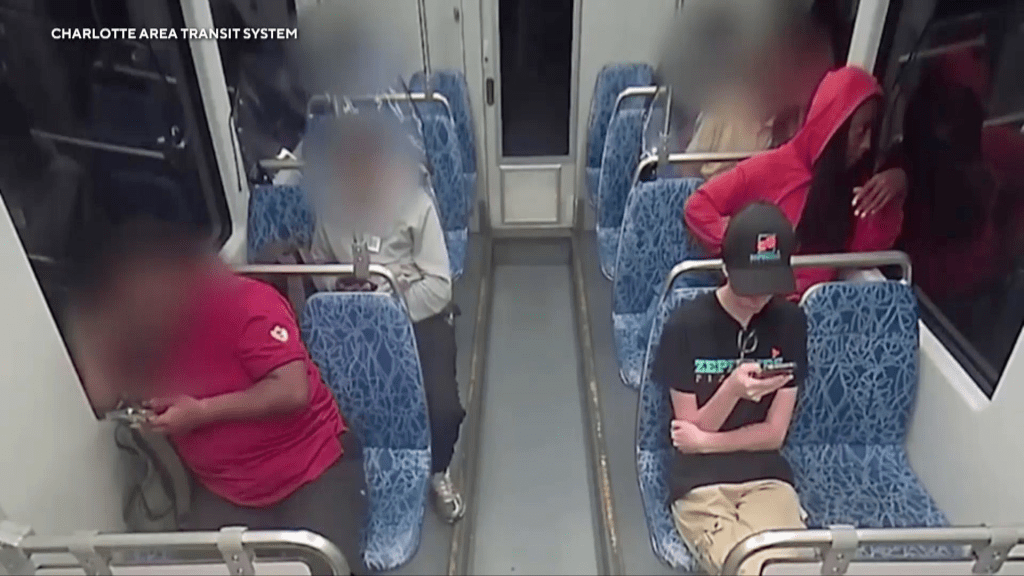Decarlos Brown Jr., the career criminal accused of fatally stabbing Ukrainian refugee Iryna Zarutska on a Charlotte light rail, indicted on federal charges that could bring the death penalty
The man accused of brutally stabbing Ukrainian refugee Iryna Zarutska on a Charlotte light rail train earlier this year has been indicted on federal charges that could lead to the death penalty, marking a major development in one of the most shocking crimes to strike the city in years.

According to federal court filings, Decarlos Brown Jr., a repeat violent offender with a long criminal record, was formally indicted on Wednesday. Prosecutors say the case qualifies for capital punishment due to the brutality of the attack, the use of a deadly weapon in a public transportation setting, and the vulnerability of the victim. The decision follows months of mounting public outrage and renewed debate over lenient sentencing policies that allowed Brown to remain free despite multiple prior arrests.
Zarutska, 25, had fled war-torn Ukraine just two years ago, settling in North Carolina for a new start after escaping the devastation of Russia’s invasion. Friends and coworkers described her as kind, bright, and hopeful — someone who embraced her new community and spoke often about her dreams of building a life in the United States. Those dreams came to a horrifying end on the evening of May 18, when witnesses say Brown boarded the light rail and attacked her without provocation, stabbing her multiple times before fleeing the scene.

Emergency responders rushed Zarutska to a nearby hospital, but she succumbed to her injuries shortly after arrival. Her death sent shockwaves through Charlotte and beyond, sparking vigils, fundraisers, and calls for justice from the local Ukrainian-American community. Many expressed disbelief that a woman who survived the war in Europe could lose her life in what authorities described as a senseless act of violence in America.
Court records reveal that Brown had an extensive criminal history, including prior convictions for assault, robbery, and drug-related offenses. He had been released from prison less than a year before the killing, despite several violations of his parole conditions. Officials confirmed that he was under active supervision by state authorities at the time of the attack.

Federal prosecutors have taken over the case due to the attack’s occurrence on a federally funded transit system, a move that allows for harsher penalties. Legal experts say the federal indictment significantly raises the stakes, signaling that the Justice Department intends to pursue the case as both a violent crime and a matter of public safety. “This is exactly the kind of case where prosecutors may seek capital punishment,” said one former federal attorney familiar with similar indictments. “The combination of a vulnerable victim, a repeat offender, and an act of public terror checks every box.”
For Zarutska’s family, the indictment brings a measure of relief but no closure. Her relatives, still grieving thousands of miles away in Ukraine, said they hope to travel to North Carolina for the trial. A statement released through a family friend read simply, “Iryna came here for peace and was met with violence. We pray that justice will be done.”

Brown, currently being held without bond, faces multiple counts, including murder, aggravated assault, and the use of a deadly weapon on public transportation. Prosecutors have not yet formally confirmed whether they will seek the death penalty, but sources close to the investigation say the case meets all qualifying criteria under federal law.
The Charlotte community continues to mourn Zarutska’s loss, remembering her as a symbol of resilience and hope in a city that embraced her as one of its own. As candles continue to burn at the small memorial near the light rail stop where she was killed, residents say the federal indictment is a step toward accountability — and a reminder of the deep scars left by one man’s violence.



